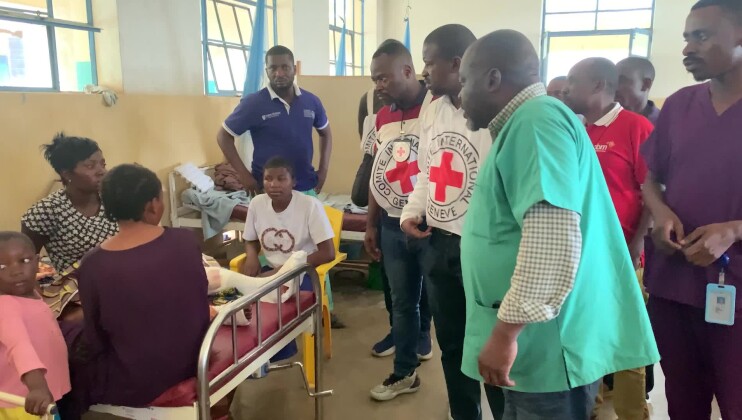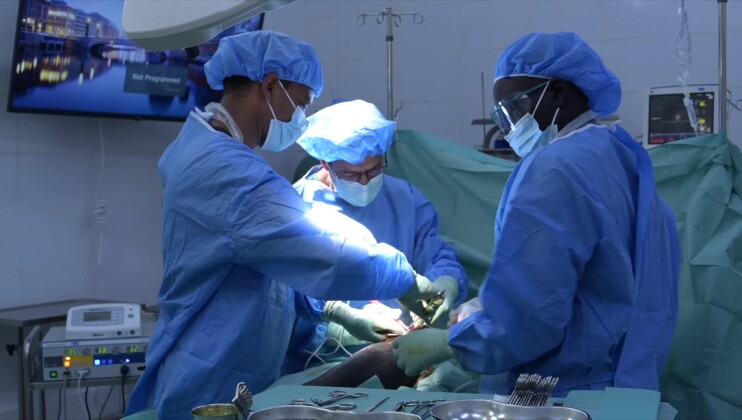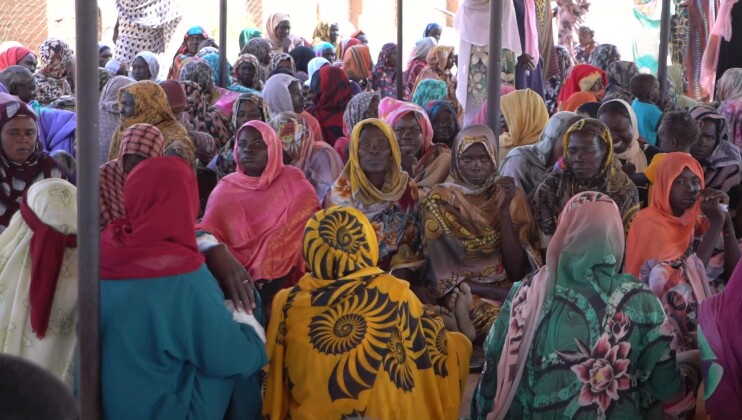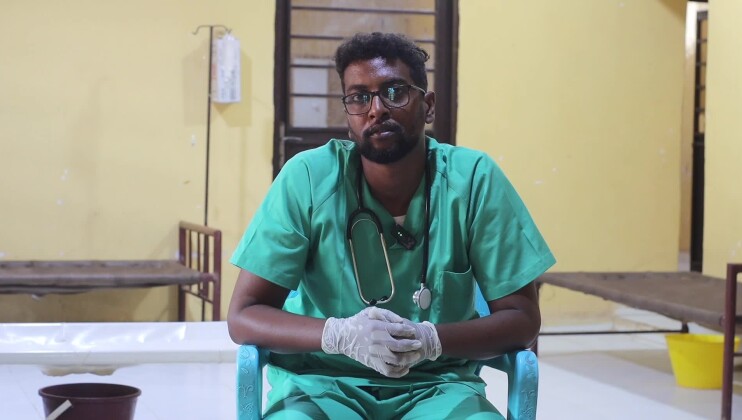Life for refugees in camps in South Sudan is precarious as they face serious shortages of clean drinkable water. These camps close to the Sudanese border are home to thousands of families sheltering from the ongoing fighting in Sudan.
Yusuf Batil camp is one of the four refugee camps in Maban county, northern South Sudan, with 37,000 displaced people. The camp has been worst hit by the lack of clean water, with poor hygiene conditions contributing to the spread of water borne diseases.
Kinena Dalbashi has been in Yusuf Batil camp for three months. She and her three children walked for eight days from their village in the Blue Nile region in Sudan to the camp. "There was heavy fighting and bombardment of the village one night, so we ran into the bush with our children. Then we started to walk here," Dalbashi explains. "On the way here, we met some elderly people and children, who had nothing to eat. They were only drinking water."
Like Dalbashi, most people arrive at Batil camp exhausted after an arduous journey on foot that can last weeks. Severe water shortages and stretched resources in the camps are further weakening the refugees. With a lack of clean water, many are resorting to drinking contaminated surface water. Children are especially vulnerable to death from water-borne diseases such as diarrhoea. Chris Davies, ICRC Water and Habitat delegate, says: "We have a hepatitis E outbreak here and diarrhoea cases. A lack of water is a lack of everything. Skin diseases are on the rise. Water is the cause of it all really."
Maimouna Tahir Gala is from Blue Nile state in Sudan and arrived in Batil camp three months ago. She has seven children and the water point where she gets her water from is often empty. In desperation and with the help of others, lifting up the pipe can sometimes force out the last drops of water. Gala says: "I couldn't wash the children today as there was no water, and I couldn't do any cooking because there is no water."
The ICRC is tackling this emergency by distributing aid to 80,000 refugees (through all 4 refugee camps) and improving access to clean water in Batil Camp. They are expanding the camp's water infrastructure: installing piping, storage tanks, tap stands and pumps, especially on the camp's peripheries where water is least available. Davies explains: "We're increasing the water storage both on site and at the bore holes so we can keep these bore holes running longer. The other main thing is to increase the network of tap stands, especially for the communities further out - to stop these people having to walk so far for water."
The ICRC is also handing out household items such as additional clothing, tarpaulin, blankets, mosquito nets and sleeping mats to protect against the elements and help prevent malaria and respiratory infections.. To improve hygiene practices, the ICRC is providing jerry cans, buckets, soap and washing basins. These materials are for approximately 17,000 households across the four camps. This reaches over 75% coverage of the refugee population in Maban county.
DOPESHEET - Download in ENGLISH, FRENCH and SPANISH
Location: Batil camp, Maban county, South Sudan
Length: 3:59
Date: 15-18 October 2012
Format: Mpeg2 / 16:9 anamorphic / HD
Production: Ewan Watson and Nicola Fell
Sound: languages
ICRC ref: AV044N South Sudan Camp
Copyright: ICRC access all
0:00 line of women refugees
0:09 children and tents
0:13 close up of girl
0:17 various of mum washing child
0:27 Kinena Dalbashi going to collect water at the nearest tap, a 15 minute walk away
0:36 SOUNBITE Kinena Dalbashi, Sudanese refugee (in Arabic)
"There was heavy fighting and bombardment of the village one night, so we ran into the bush with our children. Then we started to walk here. On the way here, we met some elderly people and children, who had nothing to eat. They were only drinking water."
0:55 various of child pouring dirty water into container
1:12 SOUNDBITE Chris Davies, ICRC Water and Habitat delegate (in English):
"We have a hepatitis E outbreak here and diarrhoea cases. A lack of water is a lack of everything. Skin diseases are on the rise. Water is the cause of it all really."
1:32 children carrying water containers
1:45 Maimouna Tahir Gala carrying empty water containers looking at empty taps
1:56 man lifting water hose to get out remains of water
2:04 close up of water pouring in
2:07 woman enters tent
2:13 various of woman using little water wash face of child
2:20 SOUNDBITE Maimouna Tahir Gala, Sudanese refugee (in Arabic)
"I couldn't wash the children today as there was no water, and I couldn't do any cooking because there is no water."
2:36 men cutting wood
2:45 men digging
2:54 pan of water network
2:59 SOUNDBITE Chris Davies, ICRC Water and Habitat delegate (in English):
"We're increasing the water storage both on site and at the bore holes so we can keep these bore holes running longer. The other main thing is to increase the network of tap stands, especially for the communities further out - to stop these people having to walk so far for water."
3:23 various crowd of women waiting for water
3:35 close up of water coming out of tap
3:38 woman carrying full water containers
3:45 various ICRC distribution of jerry cans, buckets, soap and washing basins
3:59 END



